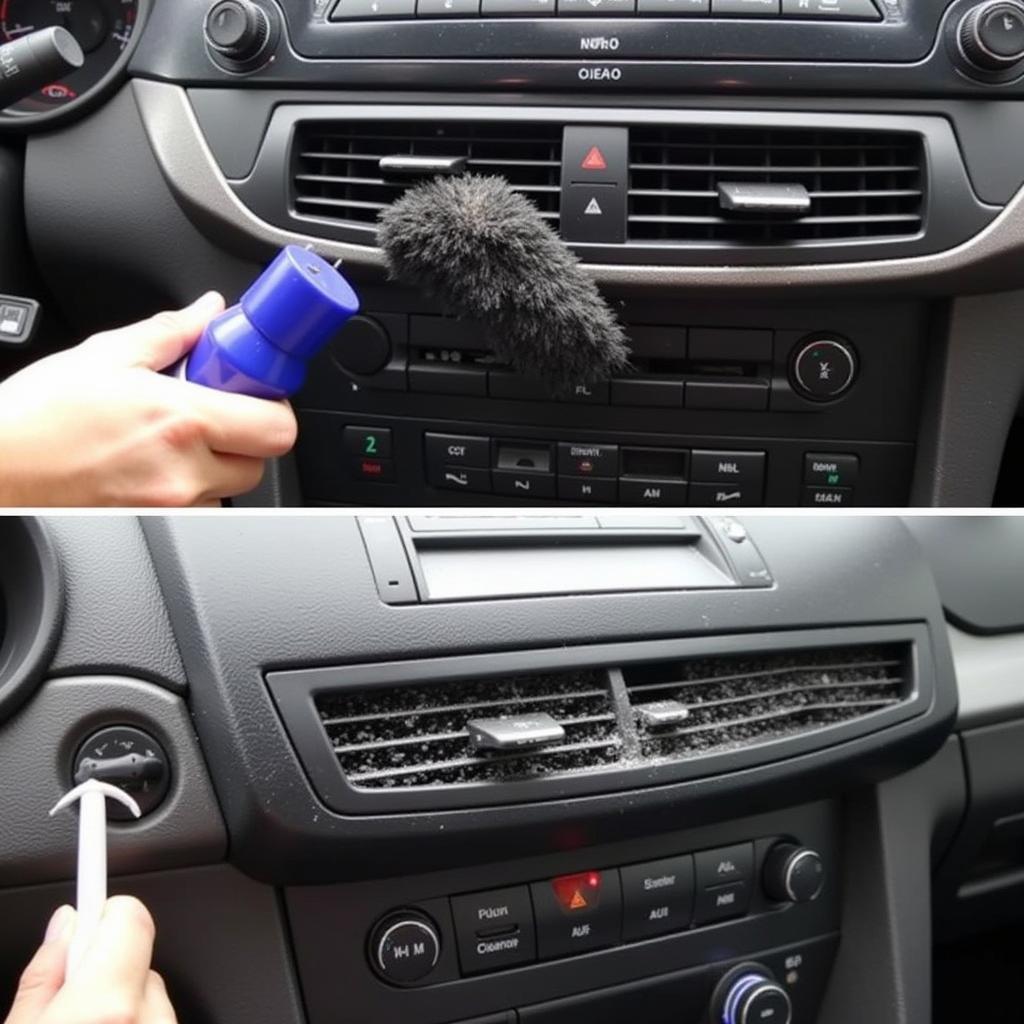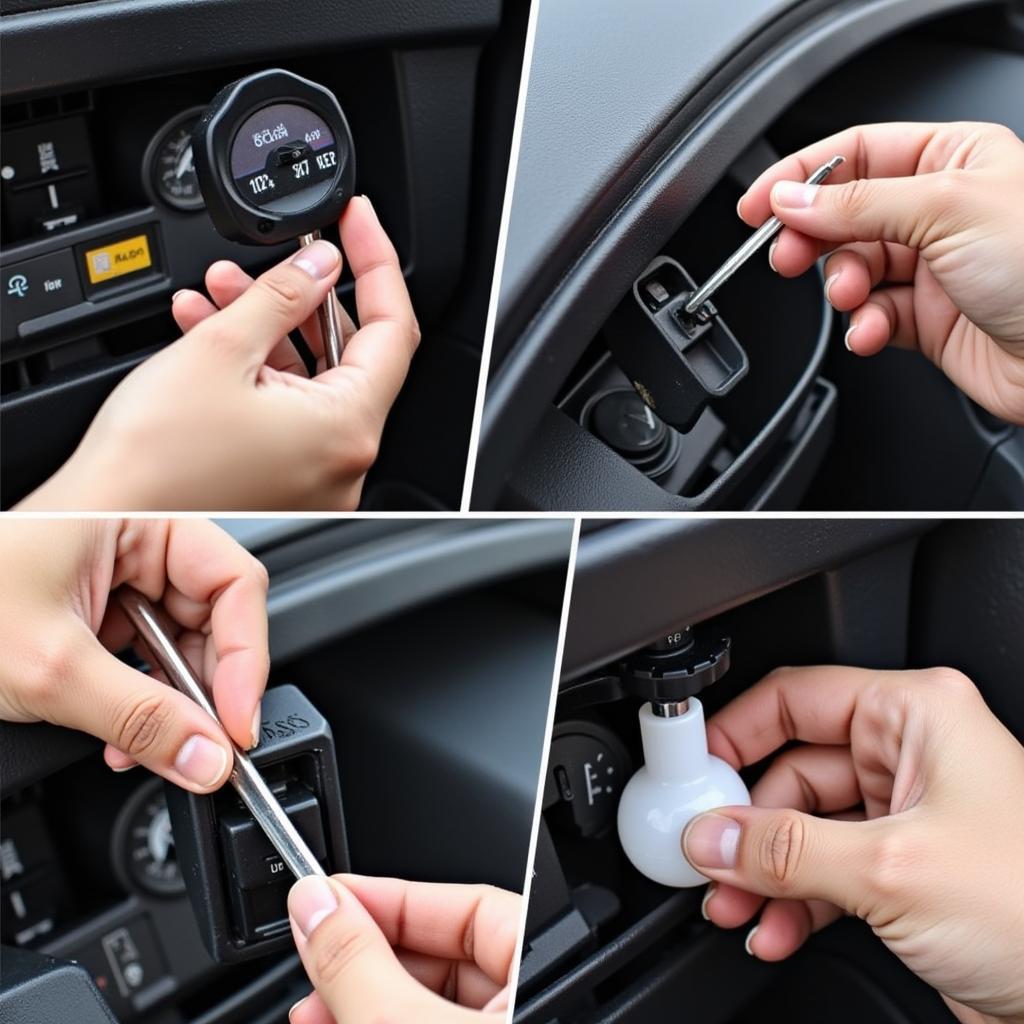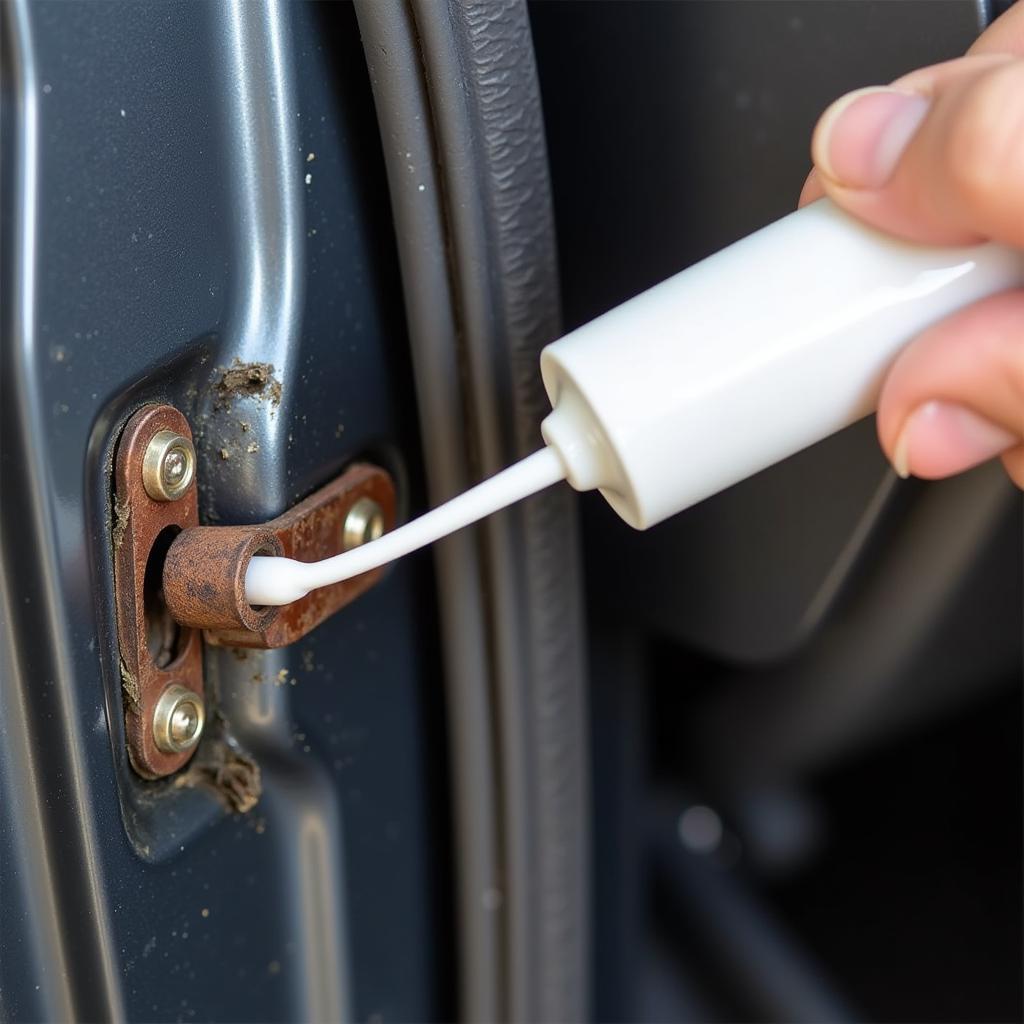If your car is shaking and turning off, you’re not alone. This is a common problem that can be caused by a variety of factors. It can be a frustrating experience, leaving you stranded on the side of the road or wondering what’s going on with your vehicle.
This article will provide a comprehensive guide to understanding the potential causes of this issue, as well as steps you can take to troubleshoot and resolve it.
Potential Causes of Car Shakes and Turning Off
Engine Problems
One of the most common reasons for a car shaking and turning off is engine problems. Here are some potential engine issues:
- Spark Plugs: Worn or damaged spark plugs can cause misfires, leading to a rough idle and potential engine shutdowns.
- Ignition Coils: Ignition coils are responsible for delivering electricity to the spark plugs. If a coil fails, it can cause a misfire in a specific cylinder.
- Fuel Injectors: Clogged fuel injectors can prevent the proper delivery of fuel to the combustion chamber, resulting in a lack of power and engine stalling.
- Fuel Pump: A faulty fuel pump may not be able to deliver enough fuel to the engine, causing it to run poorly and stall.
- Oxygen Sensor: Oxygen sensors monitor the amount of oxygen in the exhaust gases and send this information to the engine control unit (ECU). A faulty sensor can lead to incorrect fuel-air mixture, resulting in engine shaking and stalling.
- Mass Airflow Sensor: This sensor measures the amount of air entering the engine. A faulty sensor can cause the ECU to provide an incorrect fuel-air mixture, leading to poor engine performance.
Transmission Issues
While less common, transmission problems can also cause a car to shake and turn off.
- Torque Converter: A faulty torque converter can cause the transmission to slip, leading to a loss of power and a rough idle.
Electrical Problems
Electrical issues can also contribute to car shakes and shutdowns.
- Battery: A weak or failing battery can cause the engine to lose power and stall.
- Alternator: The alternator generates electricity to charge the battery and power the vehicle’s electrical system. A failing alternator can lead to a loss of power and engine shutdown.
- Wiring Problems: Damaged or loose wiring can interrupt the flow of electricity to various components, including the engine control unit (ECU), fuel pump, and ignition system.
Diagnosing the Problem
Identifying the root cause of your car shaking and turning off requires proper diagnosis.
Here are some steps you can take to diagnose the problem:
- Check the Engine Light: A check engine light can indicate a variety of issues. Use an OBD-II scanner to read the codes and pinpoint the problem.
- Listen to the Engine: Pay attention to any unusual noises coming from the engine, such as knocking, rattling, or clicking.
- Inspect the Spark Plugs: Visually inspect the spark plugs for signs of wear, damage, or fouling.
- Check for Vacuum Leaks: Vacuum leaks can disrupt the engine’s air intake system.
- Test the Fuel Pressure: Use a fuel pressure gauge to check if the fuel pump is delivering adequate fuel pressure.
- Inspect the Battery and Alternator: Check the battery terminals for corrosion and measure the battery voltage.
- Test the Electrical System: Use a multimeter to test the voltage and current of various electrical components.
Fixing the Problem
Once you’ve diagnosed the issue, you can begin to fix it.
- Replace Worn or Damaged Parts: If you find any faulty components, such as spark plugs, ignition coils, or fuel injectors, replace them with new parts.
- Clean Clogged Fuel Injectors: Use a fuel injector cleaner to remove any buildup that may be obstructing the fuel flow.
- Repair or Replace Damaged Wiring: Repair or replace any damaged or loose wiring.
- Replace the Battery: If your battery is weak or failing, replace it with a new one.
- Replace the Alternator: If your alternator is failing, replace it with a new one.
- Flush the Transmission: A transmission flush can help to remove any debris or contaminants that may be causing problems.
Expert Insights
*“It’s crucial to diagnose the problem correctly before attempting any repairs. Incorrect diagnosis can lead to wasted time, money, and even further damage to your vehicle.” – John Smith, Automotive Technician*
*“Always refer to your car’s owner’s manual for recommended maintenance schedules and repair procedures. This will ensure that you’re following the manufacturer’s guidelines.” – Mary Jones, Certified Mechanic*
*“If you’re not comfortable performing repairs yourself, it’s best to take your car to a qualified mechanic.” – Robert Davis, Automotive Specialist*
Conclusion
Car shaking and turning off can be a frustrating experience, but understanding the potential causes and troubleshooting steps can help you get back on the road quickly. Remember to always prioritize safety, use the correct tools, and seek professional help if needed. If you’re unsure about diagnosing or fixing the issue, reach out to a qualified mechanic.
At AutoTipPro, we provide expert automotive repair services and are here to help you with any automotive issues. Contact us today for assistance:
Phone: +1 (641) 206-8880
Address: 500 N St Mary’s St, San Antonio, TX 78205, United States
FAQ
Q: What are the most common reasons for a car to shake and turn off?
A: Common causes include engine issues like faulty spark plugs, ignition coils, or fuel injectors, as well as electrical problems like a weak battery or failing alternator.
Q: How do I check if my car is shaking and turning off due to an engine problem?
A: Listen for unusual engine noises, check the engine light, and inspect the spark plugs for signs of wear or damage.
Q: Can a transmission problem cause my car to shake and turn off?
A: Yes, a faulty torque converter can lead to transmission slippage, resulting in a rough idle and potential engine shutdown.
Q: What if I don’t know how to diagnose or fix the problem?
A: Contact a qualified mechanic for professional diagnosis and repair.
Q: What should I do if my car shakes and turns off while driving?
A: Pull over to a safe location, turn off the engine, and assess the situation. If possible, try to restart the car. If it doesn’t start, or if you’re unsure about what to do, call for roadside assistance or a qualified mechanic.







Leave a Reply